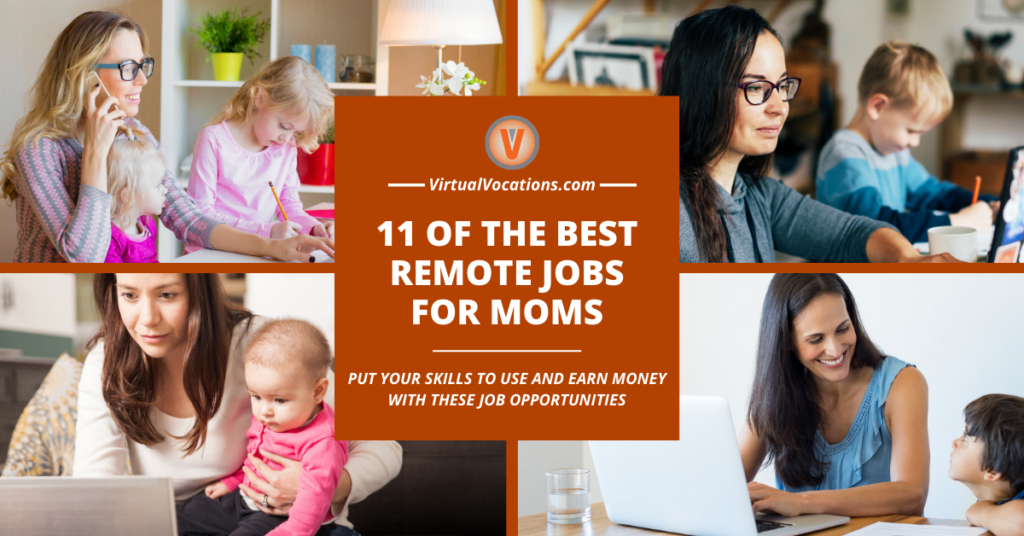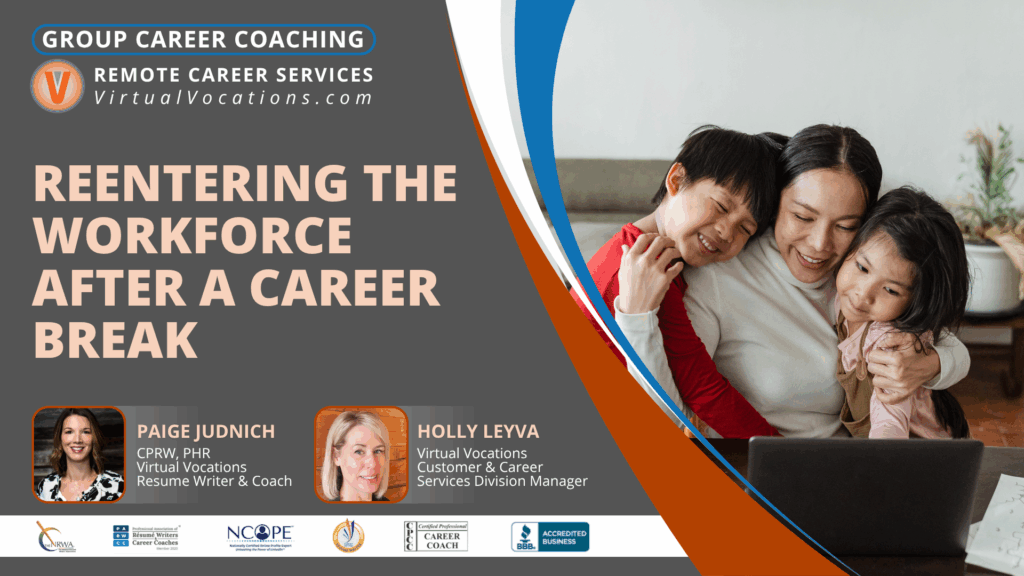Updated July 2025
Finding a new job is difficult as it is. But finding out you’re pregnant while searching for a job can add another dimension of stress and uncertainty. Whether your pregnancy is planned, unplanned, your first, or your fifth, remote job hunting while pregnant can feel overwhelming. But it’s not a reason for giving up or changing your game plan. Many companies still hire pregnant women. And in a lot of ways, the only thing that changes is your level of honesty and a sudden, yet manageable alteration to your current and future goals. So let the excitement of motherhood shine through in everything you do, including your job search. You just might find that it’s one of the best decisions you made during your pregnancy.
Know Your Rights Before Remote Job Hunting While Pregnant
Before you hop out on the job-hunting circuit, make sure you know your rights. According to the Pregnancy Discrimination Act (PDA) of 1978, you can’t be denied consideration for a position because of your pregnancy. The act also outlines several other rights that you should familiarize yourself with. The following rules apply to the treatment of pregnant women seeking employment or who are already employed:
-
Pregnant women must be treated in the same manner as non-pregnant employees, or job applicants, who are similarly capable or incapable of work.
-
As long as a pregnant woman can adequately perform essential job functions, she cannot be refused a job because of her condition.
-
Pregnant women cannot be denied a job because of the preconceived notions or prejudices about pregnant women from an employer, colleague, or client.
-
Pregnancy discrimination with regard to training, firing, fringe benefits, pay, job assignments, promotions, and/or layoffs is prohibited.
What You Should Do If You’re the Victim of Discrimination
If you feel like your pregnancy has prevented you from getting a job, promotion, training, or pay, don’t delay. The Equal Employment Opportunity Commission (EEOC) has only a 180-day window for you to file a complaint or report. State statutes also apply. If possible, enlist the help of an attorney who can help you file the correct forms and paperwork. By doing so, you can hold the right parties accountable for violating your rights and help set a precedent for other pregnant women who might be discriminated against in the future.
1. Be Upfront and Honest…or Wait
As outlined by the PDA, you’re under no obligation to disclose your pregnancy to employers or potential employers. However, many employers find that this bit of privacy is something that pregnant applicants should disclose before or during an interview.
When To Disclose Your Pregnancy
Despite the sentiment of employers, disclosing your pregnancy is entirely your choice. If you’re remote job hunting while pregnant in your first trimester, you may not feel comfortable talking about your pregnancy, especially if you’ve experienced a miscarriage or other issues in the past. Or if you aren’t showing yet, you may not want to talk about your pregnancy at all. That said, employers may look upon the mention of your pregnancy as a favorable move in terms of honesty, trustworthiness, and being a team player. Here are a few ideas for when you might want to disclose your pregnancy.
At Your Interview
While it might feel dishonest to withhold pregnancy information during your interview, telling a potential employer you are pregnant isn’t required. Why risk being turned down before you have a chance to prove yourself? If you do decide to share the news, your employer’s reaction will easily help you determine whether or not you want to continue with the interview/hiring process. Some of the potential benefits include:
-
Impressing your employer with honesty and openness
-
Learning about the company’s benefits package and/or risk assessment plan
After You’re Hired
While you are not required to inform a prospective employer you’re pregnant during the interview process, you may want to consider telling them before you start your new job if you’re past the first trimester. Since most complications are likely to occur during the first trimester, you can avoid talking about it during this time.
2. Know When to Schedule Interviews
Pregnancy should make you glow and feel beautiful. But for every time you’re radiant, you might find that you have another moment that might want to remain out of the public eye. Bloating, cravings, morning sickness, or moodiness are just some of the side effects of being pregnant.
Outside of morning sickness, you can’t know exactly when these side effects are going to rear their heads. But over time or by using your past pregnancies as a measuring stick, you can make an educated guess. Once you have a basic idea of when you might not be at your best, use this information to schedule interviews.
Remote job hunting while pregnant might give you the opportunity to conduct online interviews, but you still don’t want to leave the interview at a crucial moment or go AWOL in the middle of a question. So if you can name your time, do it. You’re more likely to have the focus you need to ace the interview.
3. Avoid the Pregnancy Theme
Some women, especially first-time expectant mothers, have the habit of talking continually about their pregnancy. This doesn’t impact every woman to the same degree, yet if you’re interviewing in the near future, you may want to take note about how often you’re discussing your pregnancy.
It’s not that interviewers don’t care about your pregnancy. They want to know a bit about you, and having a child is certainly an important life event. But when the pregnancy takes precedence over the actual job interview, you’re flirting with disaster.
If possible, have a plan for discussing your child. This could mean that you’re simply disclosing your pregnancy, or you could discuss it in a little more depth (keyword being “little”).
But more importantly, you should discuss your plans for working during pregnancy or motherhood. Reassure the interviewer that it’s not a detriment to your skills and contributions, and that you’re qualified and skilled enough to do the job. If you already have kids, you can use that as a way to show that you’ve been through all of this before. This will offer another layer of reassurance to your interviewer and boost your profile as a potential candidate.
4. Take a Look at Those Benefits
When you’re remote job hunting while pregnant, you should probably take a look at the benefits offered by each job. This may include maternity leave, a stipend for daycare, health insurance for your family, and other benefits that are advantageous to a mother with a newborn child.
However, looking at these benefits should be secondary to your enjoyment of a particular position. That isn’t to say you should skip a job with benefits for one with none, but don’t forget that your enjoyment of the job will have a far-reaching effect on your success in the future.
You should also keep your questions about maternity leave or benefits out at the interview, even if your prospective company offers it. The last thing you want to do is plant a seed in the mind of the interviewer that makes them think you only want a job for the benefits. Wait until your job offer before you decide to start discussing the added perks of the remote job.
5. Review Hours and Flexibility
Remote job hunting while pregnant requires more than just searching for a job you’re qualified for. As mentioned above, benefits are important. But in the remote world, don’t forget about the importance of flexibility. If you have to work set hours, the job may not give you the flexibility you need to balance motherhood or a proper work-life balance.
Contrarily, a merit-based company or one that’s only concerned with the end result are often better fits than those that require your presence at a regularly scheduled time. You should also ask yourself if a 9-to-5 job will conflict with any of your parental duties or if you have someone to handle child care.
This becomes even more integral to remote job hunting while pregnant when you factor in the cost of child care. Since the pandemic, 46% of families say that daycare is harder to find than ever while 72% state that it’s more expensive than ever. According to some studies, parents can expect to spend between $340 to $550 a week. That’s up to $28,000 a year.
So if you can find a job that lets you take care of your children at home and offers more flexibility, it’s like putting an extra $20 grand or so in your pocket.
Don’t Let Your Pregnancy Hinder Your Job Search
When you’re pregnant, you’re under a ton of stress. You have to worry about planning for the future, daycare, insurance, and a plethora of other things. But that shouldn’t hinder remote job hunting while pregnant. You’re every bit as qualified and talented as you were before the pregnancy; now you’re just hauling another person along for a temporary ride. So don’t give up, keep applying, and follow these tips. Your next remote job awaits.
Do you have tips for remote job hunting while pregnant? What worked for you in the past? What are some of the differences between job hunting for remote positions or onsite positions? Connect with Virtual Vocations on Facebook, Twitter, LinkedIn, Instagram, and YouTube to share your thoughts and tips. We’d love to hear from you!

Join Virtual Vocations
Joining Virtual Vocations grants you access to our hand-picked remote jobs database. Learn how our service works, browse job leads by location and career category, or search hundreds of hand-screened remote jobs to find legitimate work-at-home job leads that match your skills and background. Register for free or contact us for more information on our service guarantee.
Check out our menu of Career Services provided by our team of certified professionals, including resume and career coaching services for remote jobseekers. Resume assessments and writing, LinkedIn profile enhancement, and cover letter writing are available to maximize the success of your remote job applications. Discounts on all services available to subscription members, become one now.
Based on original content by Kimberly Back







